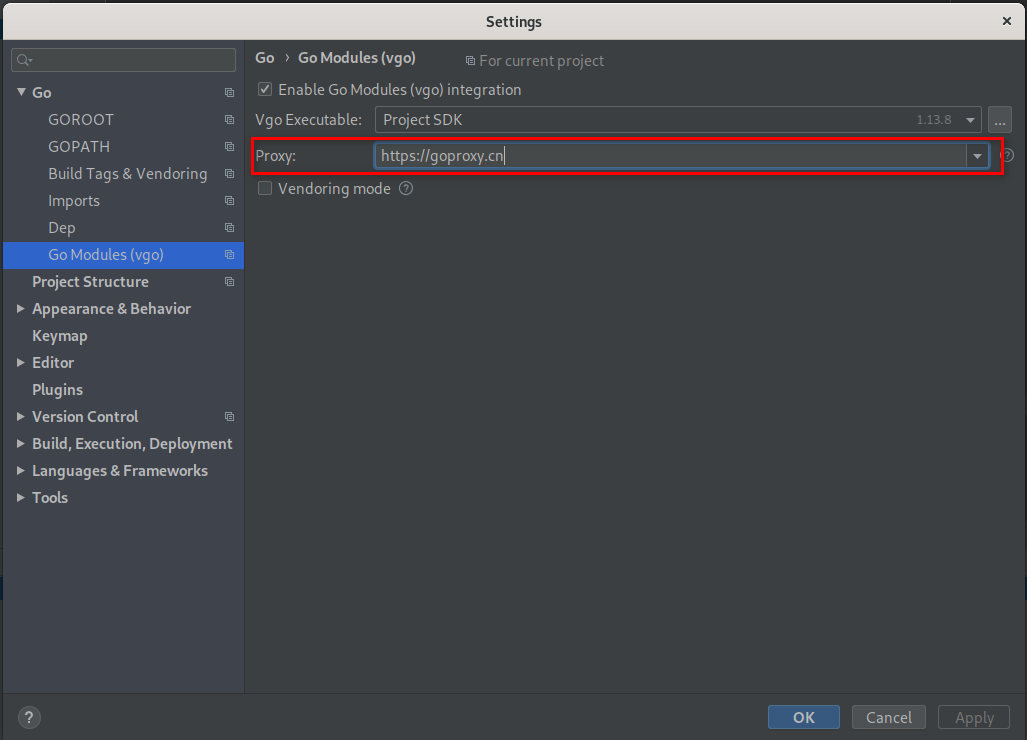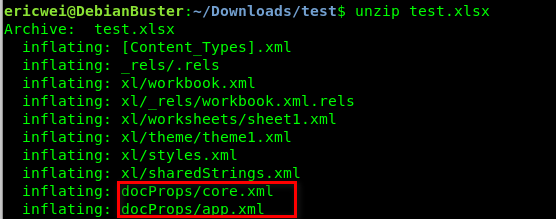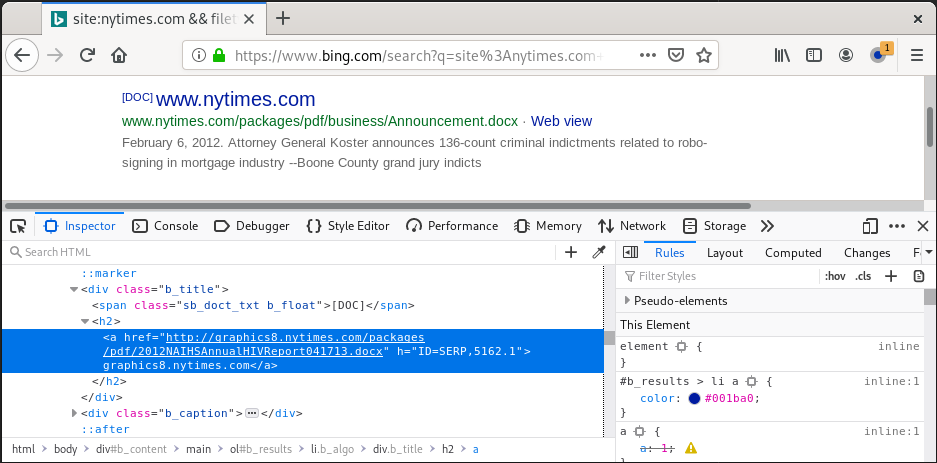Parsing Document Metadata with Bing Scaping
Set up the environment - install goquery package.
https://github.com/PuerkitoBio/goquery
go get github.com/PuerkitoBio/goquery

Modify the Proxy setting if in China. Refer to: https://sum.golang.org/

Unzip an Office file and analyze the Open XML file struct. "creator", "lastModifiedBy" in core.xml and "Application", "Company", "AppVersion" in app.xml are of primary interest.

Defining the metadata Package and mapping the data to structs in GO to open, parse, and extract Office Open XML documents.
package metadata
import (
"archive/zip"
"encoding/xml"
"strings"
)
// Open XML type definition and version mapping
type OfficeCoreProperty struct {
XMLName xml.Name `xml:"coreProperties"`
Creator string `xml:"creator"`
LastModifiedBy string `xml:"lastModifiedBy"`
}
type OfficeAppProperty struct {
XMLName xml.Name `xml:"Properties"`
Application string `xml:"Application"`
Company string `xml:"Company"`
Version string `xml:"AppVersion"`
}
var OfficeVersion = map[string]string{
"16": "2016",
"15": "2013",
"14": "2010",
"12": "2007",
"11": "2003",
}
func (a *OfficeAppProperty) GetMajorVersion() string {
tokens := strings.Split(a.Version, ".")
if len(tokens) < 2 {
return "Unknown"
}
v, ok := OfficeVersion[tokens[0]]
if !ok {
return "Unknown"
}
return v
}
// Processing Open XML archives and embedded XML documents
func NewProperties(r *zip.Reader) (*OfficeCoreProperty, *OfficeAppProperty, error) {
var coreProps OfficeCoreProperty
var appProps OfficeAppProperty
for _, f := range r.File {
switch f.Name {
case "docProps/core.xml":
if err := process(f, &coreProps); err != nil {
return nil, nil, err
}
case "docProps/app.xml":
if err := process(f, &appProps); err != nil {
return nil, nil, err
}
default:
continue
}
}
return &coreProps, &appProps, nil
}
func process(f *zip.File, prop interface{}) error {
rc, err := f.Open()
if err != nil {
return err
}
defer rc.Close()
if err := xml.NewDecoder(rc).Decode(&prop); err != nil {
return err
}
return nil
}
Figure out how to search for and retrieve files by using Bing.
1. Submit a search request to Bing with proper filters to retrieve targeted results.
2. Scrape the HTML response, extracting the HRER(link) data to obtain direct URLs for documents.
3. Submit an HTTP request for each direct document URL.
4. Parse the response body to create a zip.Reader.
5. Pass the zip.Reader into the code you already developed to extract metadata.
Analyze the search result elements in Bing.

Now scrap Bing results and parse the document metadata.
package metadata
import (
"archive/zip"
"encoding/xml"
"strings"
)
// Open XML type definition and version mapping
type OfficeCoreProperty struct {
XMLName xml.Name `xml:"coreProperties"`
Creator string `xml:"creator"`
LastModifiedBy string `xml:"lastModifiedBy"`
}
type OfficeAppProperty struct {
XMLName xml.Name `xml:"Properties"`
Application string `xml:"Application"`
Company string `xml:"Company"`
Version string `xml:"AppVersion"`
}
var OfficeVersion = map[string]string{
"16": "2016",
"15": "2013",
"14": "2010",
"12": "2007",
"11": "2003",
}
func (a *OfficeAppProperty) GetMajorVersion() string {
tokens := strings.Split(a.Version, ".")
if len(tokens) < 2 {
return "Unknown"
}
v, ok := OfficeVersion[tokens[0]]
if !ok {
return "Unknown"
}
return v
}
// Processing Open XML archives and embedded XML documents
func NewProperties(r *zip.Reader) (*OfficeCoreProperty, *OfficeAppProperty, error) {
var coreProps OfficeCoreProperty
var appProps OfficeAppProperty
for _, f := range r.File {
switch f.Name {
case "docProps/core.xml":
if err := process(f, &coreProps); err != nil {
return nil, nil, err
}
case "docProps/app.xml":
if err := process(f, &appProps); err != nil {
return nil, nil, err
}
default:
continue
}
}
return &coreProps, &appProps, nil
}
func process(f *zip.File, prop interface{}) error {
rc, err := f.Open()
if err != nil {
return err
}
defer rc.Close()
if err := xml.NewDecoder(rc).Decode(&prop); err != nil {
return err
}
return nil
}
